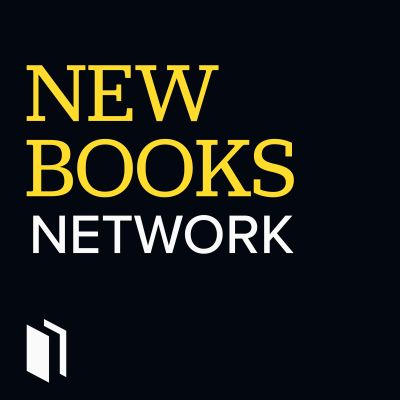Interviews with Authors about their New Books Support our show by becoming a premium member! https://newbooksnetwork.supportingcast.fm/new-books-network
https://newbooksnetwork.com
Gesamtlänge aller Episoden: 805 days 22 hours 43 minutes
Nell Irvin Painter, “The History of White People” (Norton, 2010)
We in the West tend to classify people by the color of their skin, or what we casually call “race.” But, as Nell Irvin Painter shows in her fascinating new book The History of White People (Norton, 2010), it wasn’t always so. The Greeks didn’t do it,
Ian Sample, “Massive: The Missing Particle that Sparked the Greatest Hunt in Science” (Basic Books, 2010)
You’ve probably read about the Large Hadron Collider (LHC). It’s the largest (17 miles around!), most expensive (9 billion dollars!) scientific instrument in history. What’s it do? It accelerates beams of tiny particles (protons) to nearly the speed of...
Ann Fabian, “The Skull Collectors: Race, Science and America’s Unburied Dead” (University of Chicago, 2010)
What should we study? The eighteenth-century luminary and poet Alexander Pope had this to say on the subject: “Know then thyself, presume not God to scan; The proper study of mankind is man ” (An Essay on Man, 1733). He was not alone in this opinion.
David Shearer, “Policing Stalin’s Socialism: Repression and Social Order in the Soviet Union, 1924-1953” (Yale UP, 2010)
The question as to why the leaders of the Soviet Union murdered hundreds of thousands of Soviet citizens during the Great Purges is one of the most important of modern history, primarily because it shapes what we are likely to think about communism.
Thomas Weber, “Hitler’s First War: Adolf Hitler, the Men of the List Regiment, and the First World War” (Oxford UP, 2010)
Here’s something interesting. If you search Google Books for “Hitler,” you’ll get 3,090,000 results. What’s that mean? Well, it means that more scholarly attention has probably been paid to Hitler than any other figure in modern history. Napoleon,
Deborah Kaple, “Gulag Boss: A Soviet Memoir” (Oxford UP, 2010)
Here’s something remarkable: at some point in the future, something you believe to be just fine will be utterly disdained by the greater part of humanity. For instance, it is at least imaginable that one day everyone will believe that zoos were [NB] pr...
Kyra Hicks, “This I Accomplish: Harriet Powers’ Bible Quilt and Other Pieces” (Black Threads Press, 2009)
I’ll tell you something I’ve never really understood: the difference between “art” and “craft.” Yes, I get the sociological difference (“art” is made in New York and Paris; “craft” is made in Omaha and Wichita),
Joe Maiolo, “Cry Havoc: How the Arms Race Drove the World to War, 1931-1941” (Basic Books, 2010)
In Cry Havoc: How the Arms Race Drove the World to War, 1931-1941 (Basic Books, 2010), Joe Maiolo proposes (I want to write “demonstrates,” but please read the book and judge for yourself) two remarkably insightful theses.
David Farber, “The Rise and Fall of Modern American Conservatism” (Princeton UP, 2010)
I think that many smart people, particularly on the Left, make a really ill-considered assumption, to wit, that “Republican” means “Conservative.” I don’t mean lower case “c” conservative, as in wanting to maintain the status quo.
Abbott Gleason, “A Liberal Education” (TidePool Press, 2010)
I fear that most people think that “history” is “the past” and that the one and the other live in books. But it just ain’t so. History is a story we tell about the past, or rather some small portion of it. The past itself is gone and cannot, outside...
